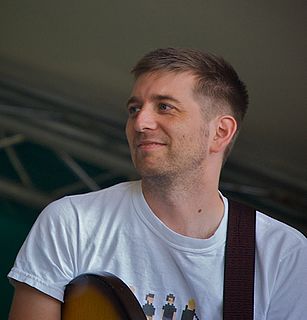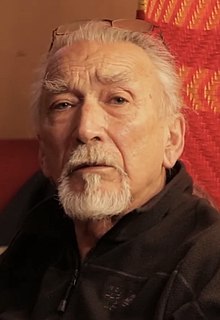A Quote by Lauren Groff
The triumph of writing fiction is that by doing so, writers can build a more ideal world in themselves.
Quote Topics
Related Quotes
When I taught at the University of Houston in the Creative Writing program we required the poets to take workshops in fiction writing and we required the fiction writers to take workshops in poetry. And the reason for that is because the fiction writers seemed to need to learn how to pay greater attention to language itself, to the way that language works.
When I'm writing, especially when I'm writing in first person, I don't think about the characterization, or how they are going to express themselves, I just express my own approach to these things. I think most writers can never divorce themselves from their private lives and personas; they are the ones that are writing. And the more they remove themselves from their own persona, the more, perhaps, mechanical the work becomes.
I was listening to this interview with fiction writer George Saunders the other day, and he said something about how the role of a writer is to build a more detailed world. I think it applies to what Gord Downie is doing with his body of work, which is to build a more detailed world and there's something really political about that.
Writers imagine that they cull stories from the world. I'm beginning to believe that vanity makes them think so. That it's actually the other way around. Stories cull writers from the world. Stories reveal themselves to us. The public narrative, the private narrative - they colonize us. They commission us. They insist on being told. Fiction and nonfiction are only different techniques of story telling. For reasons that I don't fully understand, fiction dances out of me, and nonfiction is wrenched out by the aching, broken world I wake up to every morning.
Writing fiction is very different to writing non-fiction. I love writing novels, but on history books, like my biographies of Stalin or Catherine the Great or Jerusalem, I spend endless hours doing vast amounts of research. But it ends up being based on the same principle as all writing about people: and that is curiosity!
All writers write about themselves, just as the old storytellers chose to tell stories that spoke to and about themselves. They call it the world, but it is themselves they portray. The world of which they write is like a mirror that reflects the inside of their hearts, often more truly than they know.





































